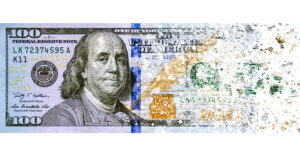
(Bloomberg) — Savers who took advantage of the high interest rates offered by high-yield savings accounts and certificates of deposit last year are waking up to Uncle Sam’s hefty tax bill.
With U.S. taxes due on April 15, many taxpayers will face higher income tax liabilities on interest earned through these accounts, which could reduce their refunds or even push them into a higher tax bracket.
“Taxpayers know they are making money on these accounts, but the reality really hits you hard when you look at your consolidated 1099 brokerage statements or get 1099-INT tax forms from banks and other financial institutions and see how big the amounts are. ,” said Miklos Ringbauer, founder of accounting and tax strategy firm MiklosCPA.
When the Congressional Budget Office last updated its forecasts, it predicted taxpayers would report $282 billion in taxable interest and dividend income in the 2023 tax year, up from $237 billion in 2019, for which the actual totals were available the last year.
Interest rates on savings accounts have been near zero for years. But after the Federal Reserve began raising the benchmark federal funds rate in 2022, many financial institutions increased the yields on cash and cash-like investments, providing savers with a way to earn significant returns while maintaining liquidity.
One beneficiary of this shift is Goldman Sachs Group Inc.’s Marcus High-Yield Online Savings Account, which currently offers an annual interest rate of 4.5%. The average interest rate on high-yield savings accounts is 4.33% in 2023, 1.09% in 2022 and just 0.38% in 2021, according to Bankrate.
“High-yield savings accounts have always been a safe way to earn strong returns, but they are also the most ‘costly’ from a tax perspective,” said Alvina Rowe, chief wealth strategist at Wilmington Trust. “Interest serves as a Ordinary income is taxed at a higher rate than income from other types of investments that may be taxed at long-term capital gains rates.”
For example, if a filer falls into the 32% income tax bracket and he or she earns $5,000 in interest in 2023, he or she will pay about $1,600 in federal taxes. By comparison, the same person might have to pay 15% long-term capital gains tax, or $750, on a $5,000 gain on a stock held for more than a year.
With a CD, any interest earned is taxed annually, even if the CD has not matured for many years. But if a CD or other interest-earning investment is held in a tax-deferred retirement account such as an IRA, the investor does not pay taxes on the interest. When the funds are eventually withdrawn, taxes are due in these accounts.
To contact the author of this story:
Suzanne Woolley in New York (email protected)





